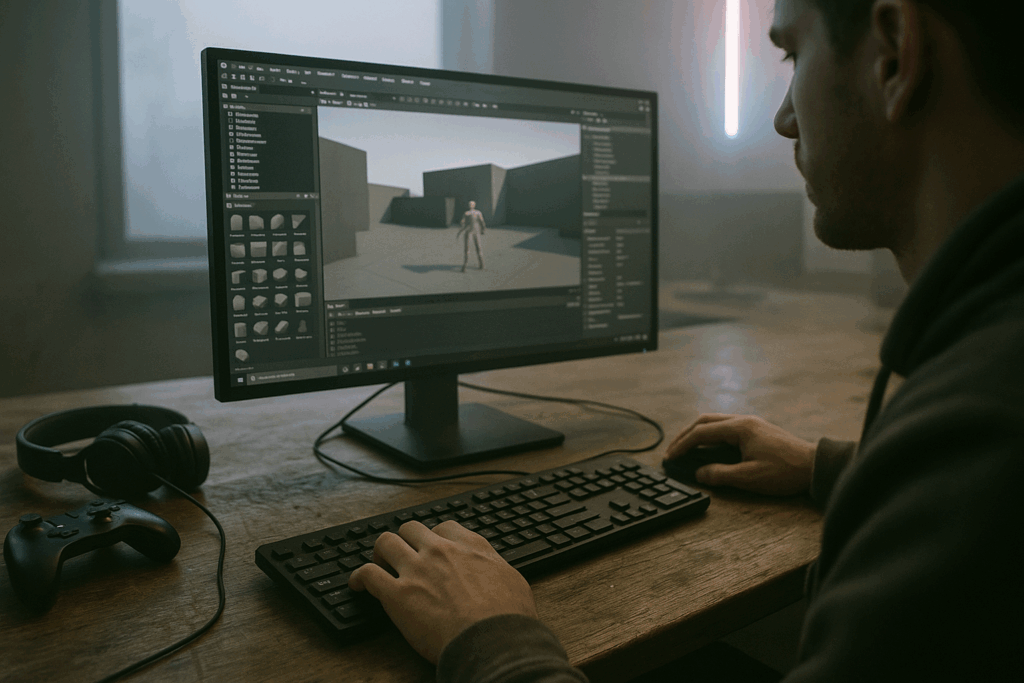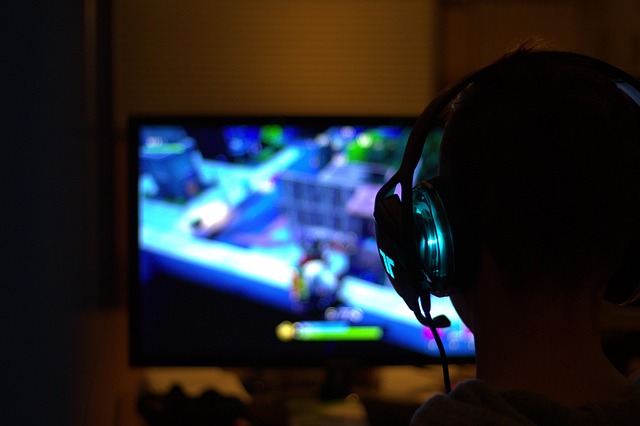The Why: Game Design Isn’t Just for Pros
Game design has cracked wide open over the past decade—and 2024 is no exception. You don’t need a studio job or a computer science degree to make something great. Thanks to open-source engines, modular assets, and free drag-and-drop tools, the barriers to entry are lower than ever. If you’ve got a laptop, an idea, and the will to see it through, you’re already halfway there.
This is the era of the self-taught creator. Indie hits like Stardew Valley, Celeste, and Undertale weren’t made by giant teams—they were crafted by people who learned on the fly, built communities, and kept iterating. Those stories aren’t outliers anymore. They’re blueprints.
Platforms like Unity, Godot, and Construct 3 make turning concepts into playable prototypes almost frictionless. Tutorials are everywhere. Forums are full of veterans happy to lend advice. It’s not easy—nothing worth building ever is—but it’s possible. And that’s what makes this moment different. Talent still matters, but access matters more.
You may not have a formal education. You might not have a crew. What you do have is the chance to create something real—if you’re willing to learn, fail, fix, and keep going.
Core Skills Every Game Designer Needs
Let’s strip it down. Good game design isn’t magic—it’s a mix of core skills that work together to create something people actually want to play. Whether you’re sketching your first level or clicking through a Unity tutorial, these are the fundamentals to get familiar with:
Game Mechanics: Mechanics are the heartbeat. They’re the rules, the systems, the actions players repeat over and over. Jumping in a platformer. Resource trading in a strategy game. What matters is how it feels, not just how it functions. Tuning a mechanic until it’s fun is probably 80% of the job.
Storytelling: Not every game needs a sweeping narrative, but the best titles give players a reason to care. Whether it’s a single sentence of motivation or an hour of backstory, stories fuel engagement. They also define tone—serious, goofy, mysterious—and guide a lot of your design decisions.
Art, Sound, and UI: Visuals pull people in. Sound sets mood. UI tells them what to do without saying a word. You don’t need to be great at all three. But you do need to respect their role in shaping how a game feels. This is where games become more than code—they become experiences.
Basic Programming: You don’t need full-stack knowledge, but you need enough to prototype your ideas. Think simple. Making a ball bounce. Making a health bar drop. C# with Unity or GDScript with Godot are solid places to start. Logic matters more than language.
Mastering these doesn’t happen overnight. But understanding them is step one. Build, test, repeat.
Unity Learn – Create with Code
This one’s built by Unity themselves, and it shows.
Unity Learn’s “Create with Code” course isn’t here to talk theory—it lets you dive in and get your hands dirty from day one. You’ll write actual C# scripts, manipulate objects in Unity’s engine, and build functioning games from scratch. It’s built for total beginners, so you won’t need a coding background to keep up.
The course covers the core systems behind most games—player movement, collisions, simple AI—and wraps them in small but complete projects. You won’t just be watching videos; you’ll be clicking, dragging, typing, testing, fixing. In short, you’ll be actually making games while learning how they work.
If textbook tutorials make your eyes glaze over, this hands-on format will keep you locked in. Think of it as a workshop, not a lecture. By the end, you’ll have more than notes—you’ll have playable proof you can build something real.
Pro Tips for First-Time Learners
Starting your game design journey can feel overwhelming—but it doesn’t have to be. These practical tips are geared toward beginners who want to build skills, find support, and stay motivated.
Begin with Small Projects
Don’t aim for your dream game on day one. Focus on completing small, manageable projects to build confidence and foundational skills.
- Start with simple classics like Pong, Breakout, or Tic-Tac-Toe
- Use these projects to understand game loops, collisions, and basic interface design
- Finishing something—even a tiny game—teaches you more than half-finished complexity
Test, Tweak, Repeat
Iteration is the secret sauce of good design. Games only improve through testing and feedback.
- Share early versions with friends or an online group
- Watch how users interact—what confuses or excites them?
- Iterate based on feedback: refine mechanics, fix bugs, smooth pacing
Find Your People
You don’t have to go it alone. Joining a community can keep you motivated and expose you to fresh ideas and feedback.
- Check out game dev subreddits like r/gamedev or r/IndieDev
- Join Discord servers for Unity, Unreal, or your favorite genre
- Participate in small online game jams and share progress
Embrace the Art + Logic Balance
Game design is both analytical and creative. Expect to switch gears often—and be patient with the process.
- Logic powers systems and mechanics, but great games also tell stories and stir emotion
- When you feel stuck in code, take a design break—or vice versa
- Progress takes time: consistency beats perfection
Leveling Up: Where to Go Next
Once you’ve got the hang of Unity, don’t stop there. Unreal Engine is the next logical step for many—it’s powerful, industry-grade, and free to start learning. It’s especially good if you’re aiming to work with 3D games, high-end visuals, or get into roles at larger studios. The interface has a steeper curve than Unity, but dozens of tutorials and courses make the climb doable.
Next, enter a game jam. They’re creative marathons—short, intense challenges where you build a working game fast, often within 48–72 hours. Events like Global Game Jam or Ludum Dare are open to everyone and run regularly online. Deadlines and themes force focus. You’ll learn more in a weekend jam than in a month of theory.
Finally, build a portfolio. Don’t wait for perfect. A 90-second platformer, a rough puzzle concept, even a broken combat system—they all show what you’re capable of. Keep it simple, clean, and real. Your portfolio proves you can follow through and solve problems, and that’s what future teams or employers actually care about.
Final Thought: Keep Learning by Doing
Getting started in game design doesn’t require a big budget—or a formal degree. What you do need is curiosity, consistency, and a willingness to learn by building.
Why Action Matters More Than Theory
While online courses provide the structure and foundational knowledge, your real progress will come through hands-on experimentation.
- Make simple games to understand the full cycle—from idea to execution
- Break things intentionally to see how mechanics respond
- Reflect and improve based on your own gameplay and feedback
Creation Is the Curriculum
Every mistake teaches something useful. Whether it’s a design flaw or a buggy mechanic, these moments become lessons that no textbook can offer.
- Sketch a new game idea weekly or monthly
- Try remixing common genres (can you make a platformer with puzzle elements?)
- Collaborate with other beginners to learn faster and build confidence
Go Beyond Courses
When you’re ready to expand past the basics:
- Explore industry insights, gear guides, and career tips in our Beginner’s Guide to Gaming: What You Need to Start
- Keep tabs on evolving tools and platforms
- Stay curious—the more you build, the more you’ll grow
Your journey into game design starts with just one decision: to begin.




